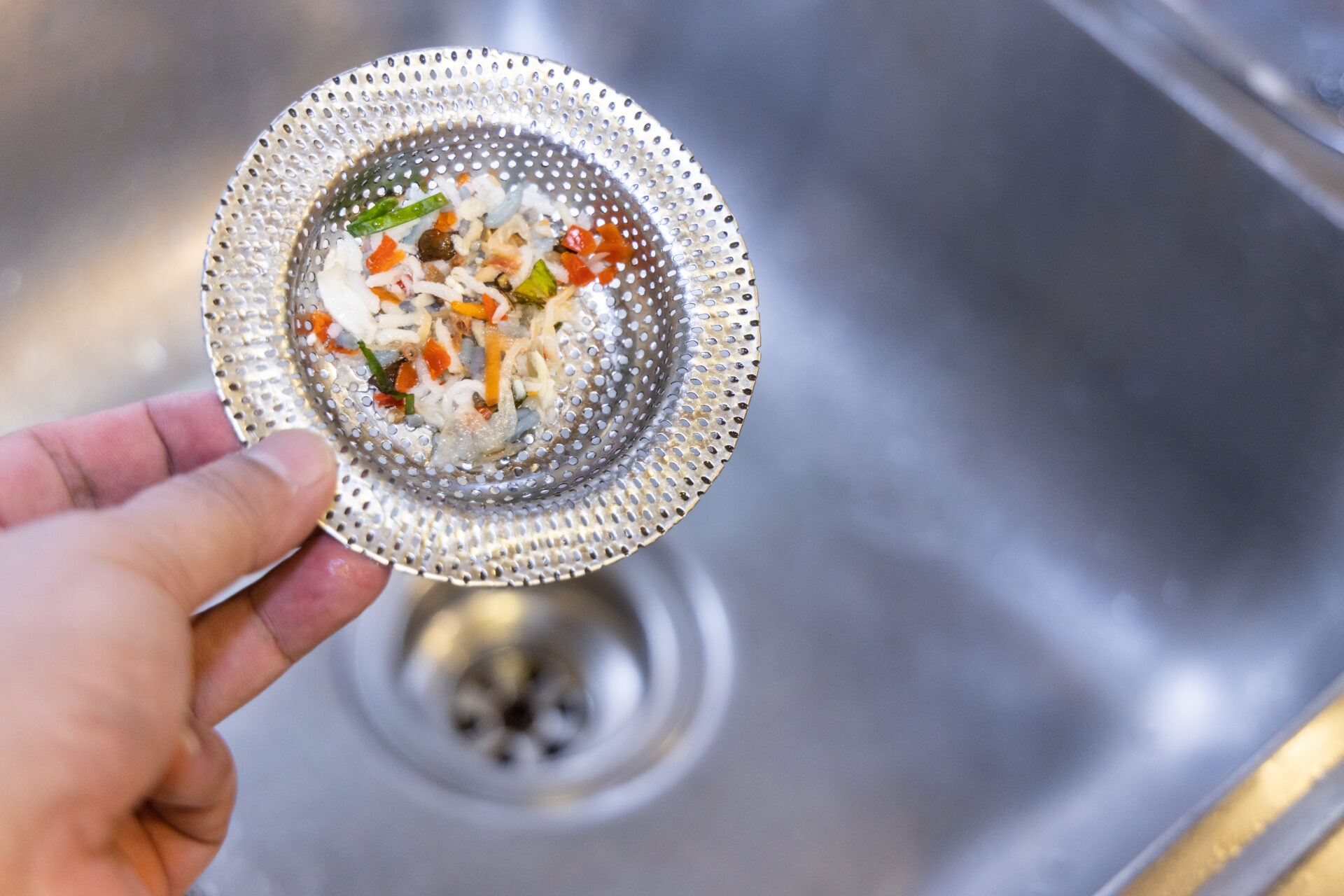
Garbage disposals offer so much convenience – just rinse the food off your plate, flip a switch, and it all goes away… right? This device, invented in 1927 by John W. Hammes, was undoubtedly a kitchen game-changer. Just keep in mind that it’s not quite as bulletproof as it sounds. The wrong items slipping down the drain can lead to avoidable clogs and costly plumbing repairs. In this article, we’ll detail the types of foods that are disposal-friendly and those which should be kept far from your kitchen sink.
Disposal-Friendly Foods
Let’s start on a positive note and discuss the foods that your garbage disposal can easily handle:
- Cold Grease and Small Meat Scraps. Contrary to popular belief, some amount of grease or fat is actually beneficial for your garbage disposal. It helps keep the shredding elements lubricated. Just be aware that the keyword here is “cold.” Warm grease can solidify as it cools down, creating blockages in the pipes.
- Fruit Rinds and Peels. Small pieces of fruit peels and rinds from items like lemons or oranges not only help sharpen the blades of your disposal but also serve as a natural deodorizer, leaving your sink smelling fresh. Lots to love about that, right?
- Cooked Meat and Soft Foods. Soft foods and small scraps of cooked meat pose no problems for your disposal. Ideally, they should just be chopped into small pieces before being put down the drain to make the disposal’s work easier.
Foods That Should NOT Go Down Your Garbage Disposal
Now onto the items that are a major no-no. Feeding these into your disposal can lead to nasty clogs, damage, and potentially expensive repairs:
- Coffee Grounds. While they may seem harmless due to their small size, coffee grounds can accumulate in the pipes and create blockages over time.
- Egg Shells. Some people believe that eggshells help sharpen garbage disposal blades, but this is a myth. The thin membranes can stick to the blades, causing clogs.
- Potato Peels. The starch in the peels actually turn into a thick paste, causing blades to stick and leading to clogs.
- Pasta and Rice. These foods expand when they come into contact with water, and as they expand, they can clog pipes.
- Bones and Hard Seeds. These items can blunt the blades, damage the motor, or get stuck in the disposal.
- Celery, Corn Husks, and Other Fibrous Materials. These types of vegetables have strings that can tangle around your disposal’s blades, causing it to jam.
Remember, when in doubt, opt for the compost or trash bin. Understanding and respecting your garbage disposal’s capabilities will ensure a long, clog-free life for your device, saving you from unexpected plumbing emergencies. Proper use (and routine maintenance) is the best way to keep your garbage disposal and plumbing system running smoothly.
FAQs
Q. How often should I clean my garbage disposal?
You should aim to clean your garbage disposal at least once every two weeks. This practice helps to keep the disposal in top shape and reduces any lingering odors. An easy way to clean your disposal is to fill it with ice cubes and a cup of white vinegar, then turn it on. The ice will help dislodge any food remnants stuck to the blades, and the vinegar will eliminate odors.
Q. What should I do if my garbage disposal gets clogged?
Never use your hand to unclog a garbage disposal (it might sound obvious, but a lot of folks do it). If you notice a clog, you can try using a plunger. If the clog persists, it might be necessary to call in a professional plumber since stubborn clogs can indicate deeper issues.
Q. Can I use bleach to clean my garbage disposal?
While bleach is a powerful disinfectant and deodorizer, it’s not recommended for garbage disposals. Bleach can corrode the metal parts of the disposal and harden any grease or oil in the drain, causing further clogs. A better option is to use dish soap and warm water or a combination of ice and vinegar, as we mentioned above.
Q. Can I put bread down the garbage disposal?
Yes, you can, but in moderation. Large quantities of bread can gum up the works and cause it to work less efficiently. Also, remember to run cold water before, during, and after using the garbage disposal to flush down the waste effectively.
Q. What if my garbage disposal smells?
If your garbage disposal has a lingering odor, it might be due to food waste build-up. Try cleaning it with ice and vinegar, or you can grind small citrus peels (like lemon or orange) to give it a fresh smell.
Q. What’s the best way to maintain my garbage disposal?
The key to maintaining a garbage disposal is regular cleaning and careful usage:
- Avoid putting hard, fibrous, or starchy foods into the disposal.
- Run cold water before, during, and after using the disposal.
- Clean it routinely to prevent build-up and unpleasant smells.
Q. Is it necessary to run water when using the garbage disposal?
Yes, it’s crucial. Running water helps to lubricate the blades, making it easier for the disposal to break down food waste. It also helps to flush the waste down the drain, reducing the risk of clogs.
By following these best practices and understanding what should and shouldn’t go down your garbage disposal, you can ensure your appliance runs smoothly for years to come. If you ever encounter any issues or need professional advice, don’t hesitate to reach out to our expert plumbing team. We’re always here to help!
